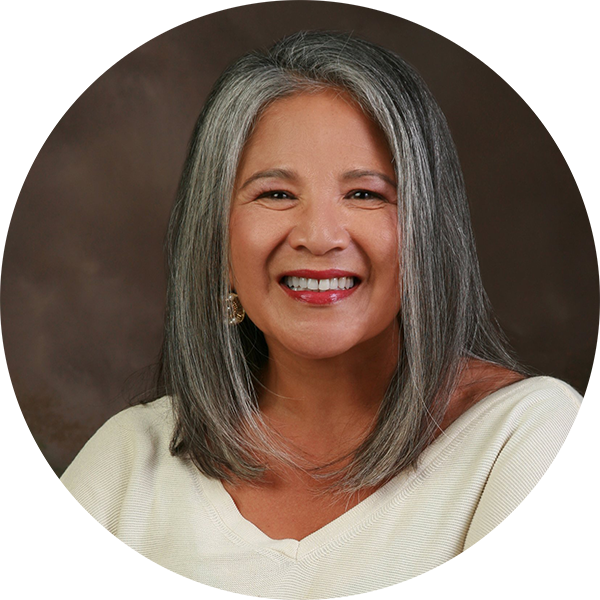Home > Taming Inner Grief Ghosts: A Reflection for End-of-Life Doulas
Taming Inner Grief Ghosts: A Reflection for End-of-Life Doulas
by Holly Strelzik, guest writer

The first step to taming grief ghosts is noticing when they appear.
Grief is no stranger to those of us working as end-of-life doulas. We walk alongside individuals and families as they traverse one of life’s most vulnerable and intimate journeys— death. But as we offer presence and support, our own grief, both past and present, may quietly stir within us. These inner grief ghosts can be subtle, arising unexpectedly, or persistent, making it difficult to fully focus on our clients. If left unaddressed, they can affect our ability to hold space effectively.
In this reflection, we’ll explore how these “inner grief ghosts” appear, why taming them is essential, and how we can navigate this emotional landscape with compassion for ourselves.

The first step to taming grief ghosts is noticing when they appear.
Grief is no stranger to those of us working as end-of-life doulas. We walk alongside individuals and families as they traverse one of life’s most vulnerable and intimate journeys— death. But as we offer presence and support, our own grief, both past and present, may quietly stir within us. These inner grief ghosts can be subtle, arising unexpectedly, or persistent, making it difficult to fully focus on our clients. If left unaddressed, they can affect our ability to hold space effectively.
In this reflection, we’ll explore how these “inner grief ghosts” appear, why taming them is essential, and how we can navigate this emotional landscape with compassion for ourselves.
The Double-Edged Nature of Grief in EOL Work
As doulas, we often pride ourselves on being deeply empathetic, and this ability to connect with others is essential to our role. However, the same empathy that enriches our relationships with clients can also open doors to emotional challenges.
Grief isn’t something we simply experience once and move on from. Remember, one definition of grief is any change in familiar patterns of behavior. There are over 40 different losses a person could experience. Personal losses from our own lives, anticipatory grief for future losses, or even collective grief—like witnessing social or global tragedies—can linger. These become our inner grief ghosts: emotional echoes that may resurface when we’re with clients. Without awareness and introspection, unresolved grief can cloud our judgment. It might show up as emotional fatigue, overidentifying with clients, or a struggle to maintain healthy boundaries. Yet it’s not a sign of weakness—it’s a sign of being human. The key is learning how to work with these emotions rather than being overwhelmed by them.
Identifying Your Inner Grief Ghosts
The first step to taming grief ghosts is noticing when they appear. This requires self-awareness and honest reflection. Are there moments when a client’s story hits too close to home? Do certain situations leave you feeling drained or restless? Do you find it hard to separate your emotions from theirs? And most importantly, how effective do you feel your decision-making abilities are in these moments?
Our grief ghosts don’t always come from the loss of loved ones. They might arise from other life transitions—divorce, illness, estranged relationships, or even personal fears about our mortality. Paying attention to emotional triggers can help us uncover where these ghosts are hiding. Consider adopting reflective practices like journaling or engaging in professional supervision. Both tools provide a safe space to explore emotional patterns that might otherwise remain buried. Peer support groups with other doulas can also be invaluable—sometimes just knowing that others share these experiences can lighten the load.
Taming, Not Erasing, the Ghosts
The goal isn’t to banish our grief ghosts; it’s to learn how to coexist with them in a way that doesn’t interfere with our work. Think of this as taming—an ongoing practice rather than a final destination.
Here are a few ways to approach it:
- Mindfulness and grounding techniques: Simple practices like focusing on your breath or using sensory awareness can bring you back to the present moment, helping you stay centered with clients.
- Self-care as a nonnegotiable: Self-care isn’t a luxury; it’s a necessity. Engage in activities that recharge you, whether it’s yoga, journaling, time in nature, creative expression, or setting boundaries.
- Emotional processing through supervision or peer groups: Speaking with a trusted supervisor or a peer group can provide perspective. Sometimes, just saying your struggles aloud makes them easier to manage.
Accepting that your grief will ebb and flow can be freeing. These emotions may show up when you least expect them, but when you’ve developed tools to manage them, they lose their power to derail your work.
Staying Present With Clients
Being present means meeting clients where they are, without the interference of personal emotions or unresolved grief. This requires us to cultivate emotional clarity so we can listen deeply and respond from a place of compassion—not from emotional reactivity.
For example, if you’re grieving the recent loss of a loved one, you may unintentionally project your emotions onto a client who is facing a similar situation. Becoming aware of this dynamic allows you to pause, ground yourself, and refocus your attention on the client’s unique journey. Taming inner grief also helps us resist the urge to “fix” things for clients. Instead, we can stay with the discomfort of their experience, knowing that our role isn’t to make it better but to offer presence and support.
The Gift of Vulnerability and Boundaries
It’s important to remember that vulnerability isn’t a flaw; it’s a tool for connection. However, vulnerability must be balanced with boundaries to prevent emotional exhaustion. Being authentic with clients is part of building trust, but it doesn’t mean sharing your personal grief. Rather, it’s about honoring your emotions while keeping the focus on the client. Healthy boundaries allow you to show up fully, without being swept away by emotional currents. Learning to say no—to extra shifts, to emotionally taxing situations, or even to a client relationship that feels triggering—is an act of self-preservation. As doulas, we are called to give but we must also know when to step back and replenish.
Conclusion: A Journey of Self-Compassion
Taming inner grief ghosts isn’t just about being better doulas; it’s about taking care of ourselves so we can continue doing this sacred work. These ghosts are part of our emotional landscape, and learning to work with them is an act of self-compassion.
When we care for our inner world, we show up more fully for those navigating their final moments. Our presence becomes a steady light for others—a calm companion in the storm of loss. In doing so, we model the same kind of grace we hope to cultivate in our clients: the ability to hold space for both joy and sorrow, without being overtaken by either.
The journey of taming grief ghosts is ongoing, but every step forward helps us become more present, compassionate, and effective doulas. And that, in itself, is a gift—both for us and for those we serve.
Posted: November 7th, 2024
AUTHOR BIO
Holly Strelzik is a certified end-of-life doula and certified advanced grief recovery method specialist based in Summit, New Jersey. She draws upon her personal grief journey, training, and professional experiences to serve those facing a wide variety of loss and grief in their lives, either in person in Union County or nationwide online and by phone. Through her end-of-life doula work, grief has emerged as the most common theme. After being an active provider in the end-of-life and grief space for several years, and a volunteer for over a decade, Holly founded grief recovery method specialist , a nonprofit committed to providing compassionate care for all facing end-of-life and grief, regardless of financial means or past actions. She is a valuable resource for end-of-life services and offers evidenced-based support in grief via a researched modality that guides clients on a profound journey of self-exploration. She hopes to elevate end-of-life and grief literacy, experiences, and care.is a certified end-of-life doula and certified advanced grief recovery method specialist based in Summit, New Jersey. She draws upon her personal grief journey, training, and professional experiences to serve those facing a wide variety of loss and grief in their lives, either in person in Union County or nationwide online and by phone. Through her end-of-life doula work, grief has emerged as the most common theme. After being an active provider in the end-of-life and grief space for several years, and a volunteer for over a decade, Holly founded Center for the Heart, a nonprofit committed to providing compassionate care for all facing end-of-life and grief, regardless of financial means or past actions. She is a valuable resource for end-of-life services and offers evidenced-based support in grief via a researched modality that guides clients on a profound journey of self-exploration. She hopes to elevate end-of-life and grief literacy, experiences, and care.

